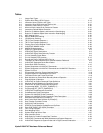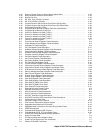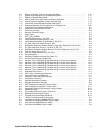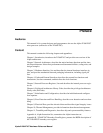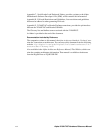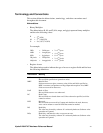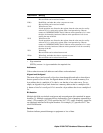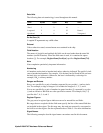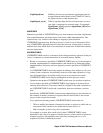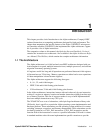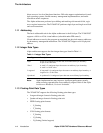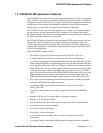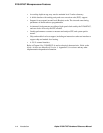
Alpha 21264/EV67 Hardware Reference Manual
xxi
Data Units
The following data unit terminology is used throughout this manual.
Do Not Care (X)
A capital X represents any valid value.
External
Unless otherwise stated, external means not contained in the chip.
Field Notation
The names of single-bit and multiple-bit fields can be used rather than the actual bit
numbers (see Bit Notation). When the field name is used, it is contained in square
brackets ([]). For example, RegisterName[LowByte] specifies RegisterName[7:0].
Note
Notes emphasize particularly important information.
Numbering
All numbers are decimal or hexadecimal unless otherwise indicated. The prefix 0x indi-
cates a hexadecimal number. For example, 19 is decimal, but 0x19 and 0x19A are hexa-
decimal (also see Addresses). Otherwise, the base is indicated by a subscript; for
example, 100
2
is a binary number.
Ranges and Extents
Ranges are specified by a pair of numbers separated by two periods (..) and are inclu-
sive. For example, a range of integers 0..4 includes the integers 0, 1, 2, 3, and 4.
Extents are specified by a pair of numbers in square brackets ([]) separated by a colon
(:) and are inclusive. Bit fields are often specified as extents. For example, bits [7:3]
specifies bits 7, 6, 5, 4, and 3.
Register Figures
The gray areas in register figures indicate reserved or unused bits and fields.
Bit ranges that are coupled with the field name specify the bits of the named field that
are included in the register. The bit range may, but need not necessarily, correspond to
the bit Extent in the register. See the explanation above Table 5–1 for more information.
Signal Names
The following examples describe signal-name conventions used in this document.
Term Words Bytes Bits Other
Byte ½1 8—
Word1216—
Longword 2 4 32 Dword
Quadword 4 8 64 2 longword



